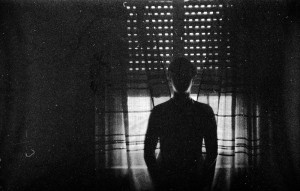 Towards the end of the novel, abandoned by Conchis and his crew, rooting around in the actors “props” stowed away in their secret, underground chamber, Nicholas comes across a fairy story which he reads without any commentary from Fowles the writer.
Towards the end of the novel, abandoned by Conchis and his crew, rooting around in the actors “props” stowed away in their secret, underground chamber, Nicholas comes across a fairy story which he reads without any commentary from Fowles the writer.
The story itself is a koan, but also one which offers us a kind of key to this PG Tips godgame I think.
“Once upon a time there was a young prince, who believed in all things but three. He did not believe in princesses, he did not believe in islands, he did not believe in God. His father, the king, told him that such things did not exist. As there were no princesses or islands in his father’s domains, and no sign of God, the young prince believed his father.
But then, one day, the prince ran away from his palace. He came to the next land. There, to his astonishment, from every coast he saw islands, and on these islands, strange and troubling creatures whom he dared not name. As he was searching for a boat, a man in full evening dress approached him along the shore.
“Are those real islands?” asked the young prince.
“Of course they are real islands,” said the man in evening dress.
“And those strange and troubling creatures?” “They are all genuine and authentic princesses.”
“Then God also must exist!” cried the prince.
“I am God,” replied the man in full evening dress, with a bow.
The young prince returned home as quickly as he could.
“So you are back,” said his father, the king.
“I have seen islands, I have seen princesses, I have seen God,” said the prince reproachfully.
The king was unmoved.
“Neither real islands, nor neat princesses, nor a real God, exist.”
“I saw them!”
“Tell me how God was dressed.”
“God was in full evening dress.”
“Were the sleeves of his coat rolled back?” The prince remembered that they had been.
The king smiled.
“That is the uniform of a magician. You have been deceived.”
At this, the prince returned to the next land, and went to the same shore, where once again he came upon the man in full evening dress.
“My father the king has told me who you are,” said the young prince indignantly. “You deceived me last time, but not again. Now I know that those are not real islands and real princesses, because you are a magician.”
The man on the shore smiled. “It is you who are deceived, my boy. In your father’s kingdom there are many islands and many princesses. But you are under your father’s spell, so you cannot see them.”
The prince returned pensively home. When he saw his father, he looked him in the eyes. “Father, is it true that you are not a real king, but only a magician?” The king smiled, and rolled back his sleeves. “Yes, my son, I am only a magician.”
“Then the man on the shore was God.”
“The man on the shore was another magician.”
“I must know the real truth, the truth beyond magic.”
“There is no truth beyond magic,” said the king.
The prince was full of sadness. He said, “I will kill myself.”
The king by magic caused death to appear.
Death stood in the door and beckoned to the prince. The prince shuddered. He remembered the beautiful but unreal islands and the unreal but beautiful princesses.
“Very well,” he said. “I can bear it.”
“You see, my son,” said the king, “you too now begin to be a magician.””
We are back in the realm of surrender. It is only when we can finally bear the reality-voiding emptiness of Mu, when we can “surrender” to it in some way, that we can then discover that our fear of how intolerable this would be, can be tolerated, even occasionally enjoyed.
There are two paths we can walk here, two viae: the via negativa, and the via positiva. These terms were once used theologically, but here are to to be employed developmentally, and experientially with regard to what it is possible to know about ourselves and each other:
The via negativa is the way of “apophatic” mystical traditions, such as Zen which asserts that nothing, no thing, can approximate the divine, or another (creature, human being), or Mu itself, which is beyond all thingness, the very antithesis of thingness. The word apophatic comes from the Greek apophanai, meaning “to deny”, which in turn, comes from apo-, meaning “away from” or “off,” and phanai, meaning “to say”.
To know Mu, is to sit tight with Mu and live it rather than write about it. To recognise that our deepest and most authentic experience of Mu, or another human being, or animal, is one of absence, silence, darkness.
Whereas the kataphatic tradition, or via positiva, is a more Christian path, which uses terms from our own experience to describe God, dogs, parents gurus.
To write as I am doing here is to move forward kataphatically, whilst acknowledging the inherent slipperiness of trying to pin down topics such as love (princesses), islands (society), God (the meaning of life), and Magicians (our PG Tips).
Mu straddles both paths, both as a meaningful “answer” to a question, as well as gibberish, a scrambled code, the gateless barrier barricaded, an empty page.
At this point in the proceedings, you might be wanting some idea of how Mu and Max, other than somewhat airy-fairy abstractions, words, and sentences, might actually play a role in our lives.
So let’s head into an Angry realm for starters. For Mu oftens takes a lead role in our experience of frustration. And frustration more often than not leads to some form of rage.